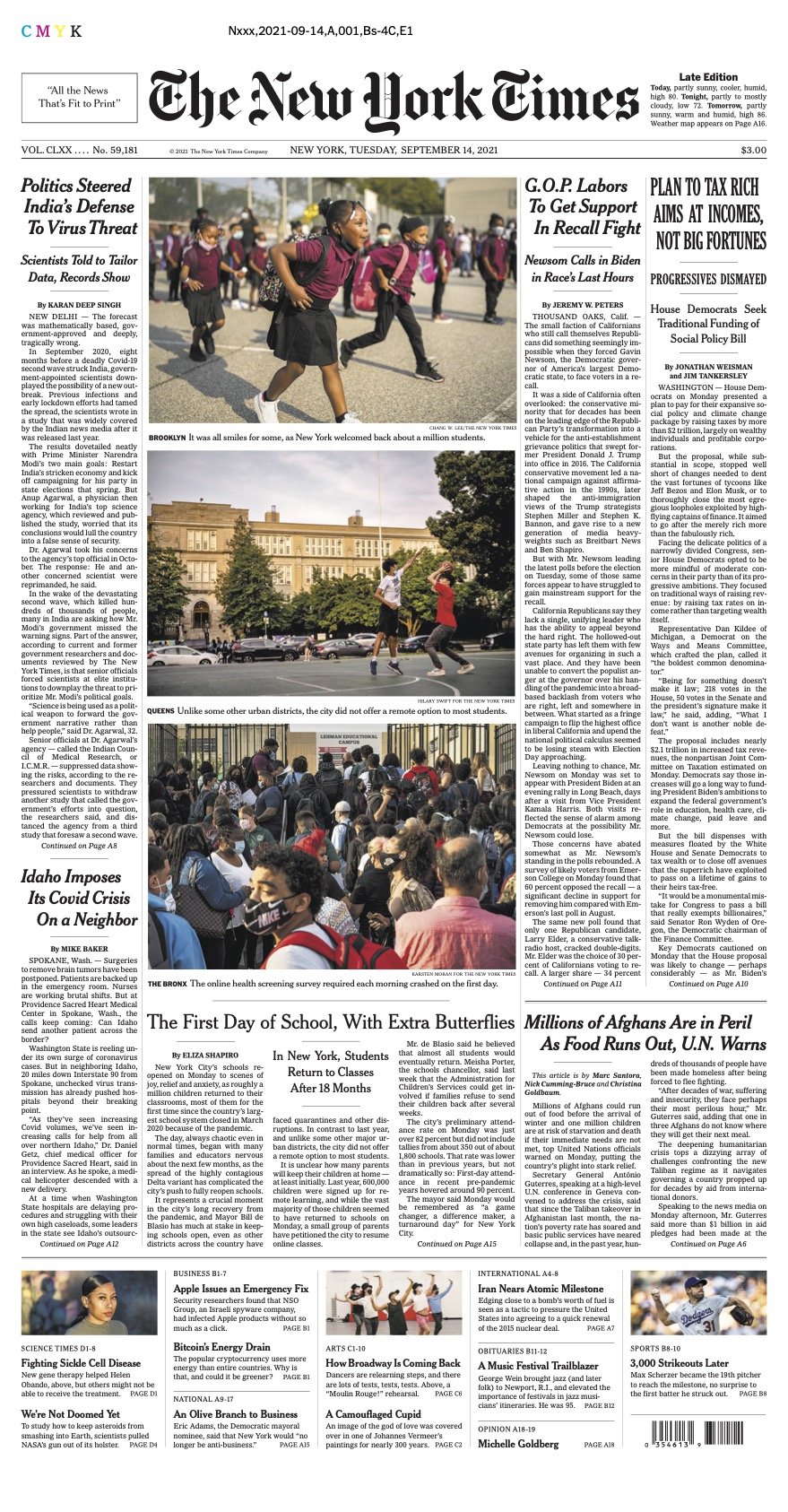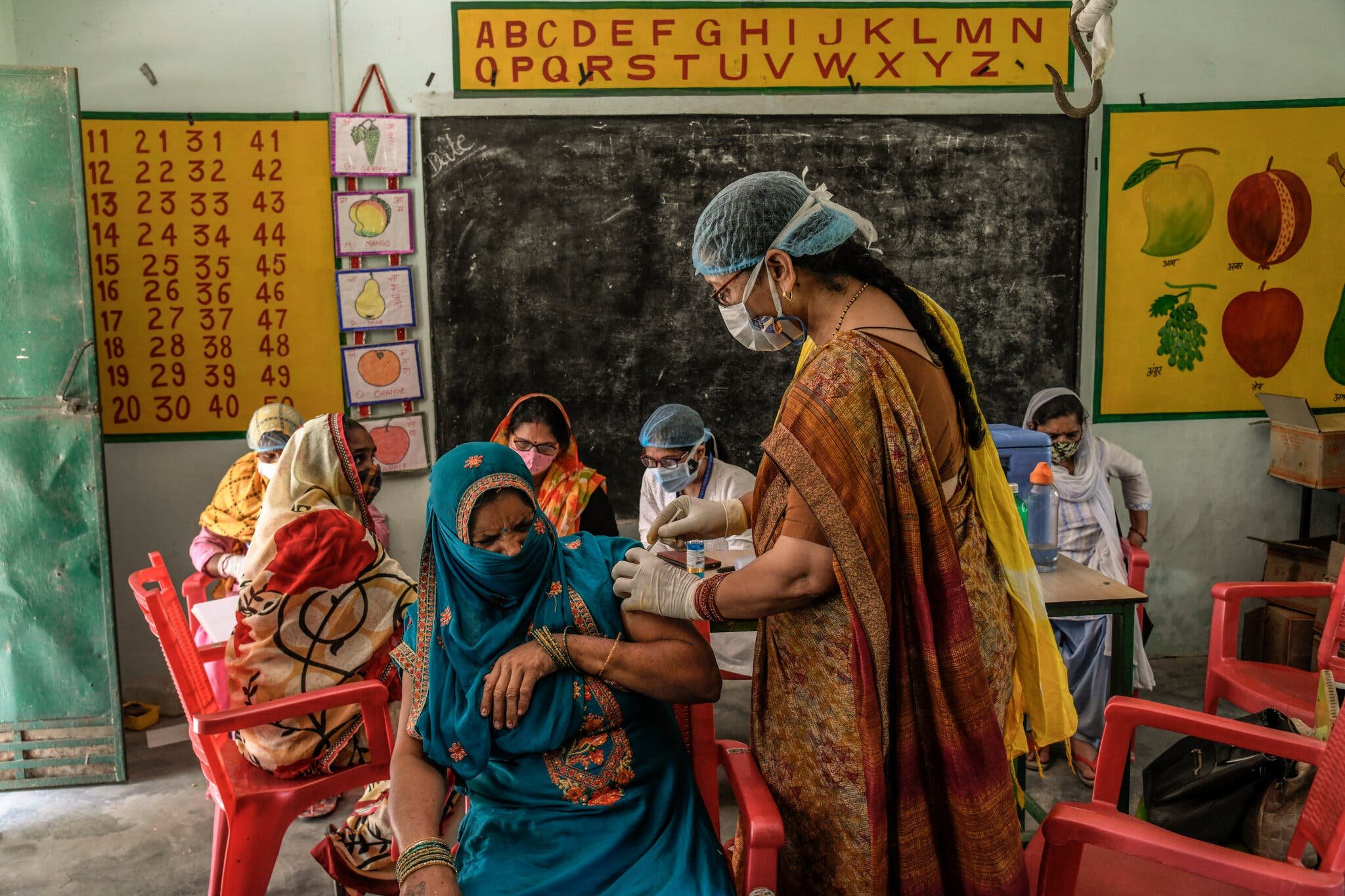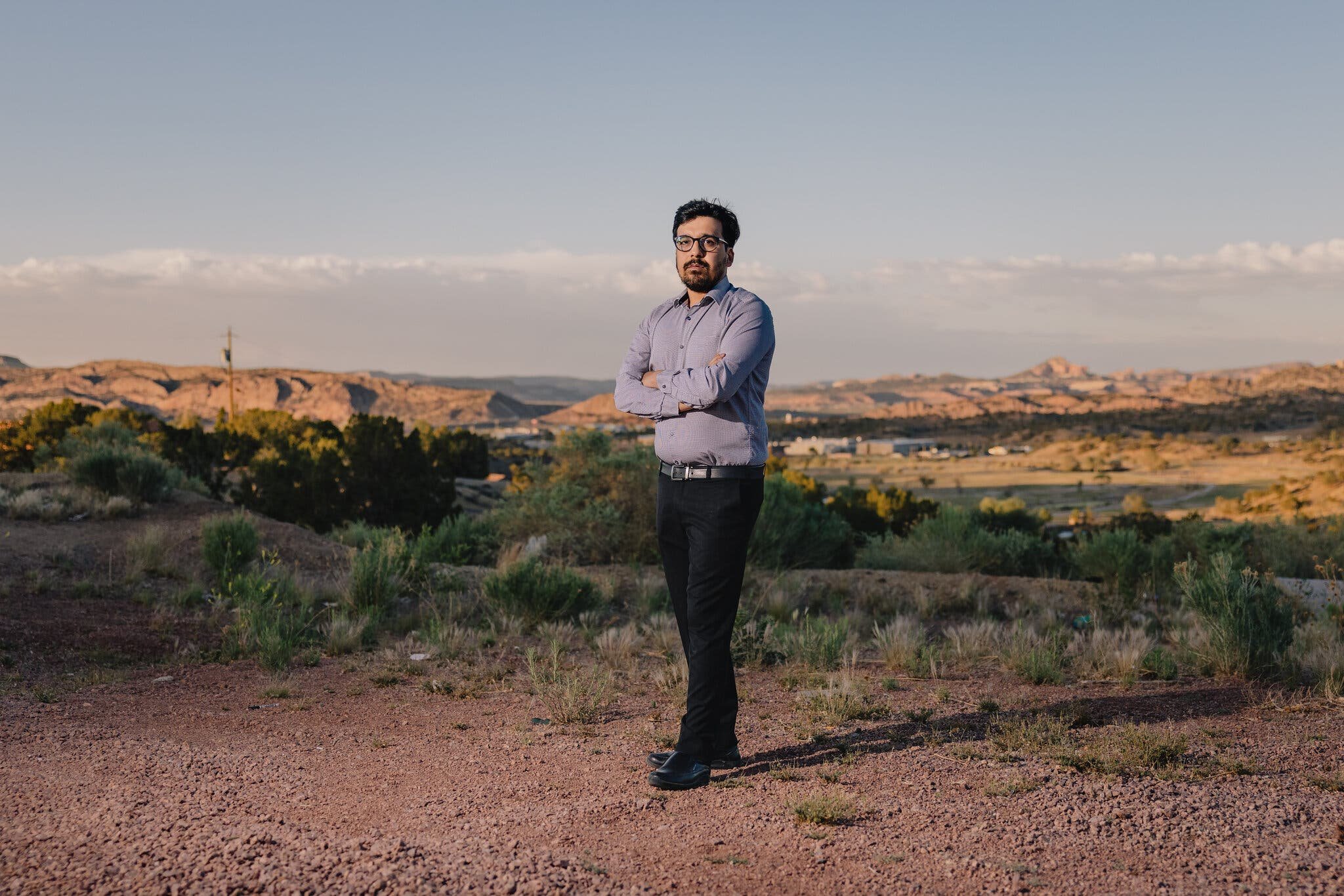What’s Happening in Kashmir? Our Cameras Contradict India’s Official Story
THE NEW YORK TIMES, AUG 23, 2019
Video: Karan Deep Singh
Indian authorities say life is returning to normal in Kashmir. But thousands of people have been detained, and the military still patrols the streets, firing pellet guns and tear gas to quell protests.
People getting vaccinated in the Indian state of Uttar Pradesh in June. India was unprepared for its second Covid-19 wave, which struck in the spring. Photo: Atul Loke for The New York Times
The country’s Top science agency tailored its findings to fit Prime Minister Narendra Modi’s optimistic narrative despite a looming crisis, researchers say
BY KARAN DEEP SINGH
NEW DELHI — The forecast was mathematically based, government-approved and deeply, tragically wrong.
In September 2020, eight months before a deadly Covid-19 second wave struck India, government-appointed scientists downplayed the possibility of a new outbreak. Previous infections and early lockdown efforts had tamed the spread, the scientists wrote in a study that was widely covered by the Indian news media after it was released last year.
The results dovetailed neatly with Prime Minister Narendra Modi’s two main goals: restart India’s stricken economy and kick off campaigning for his party in state elections that coming spring. But Anup Agarwal, a physician then working for India’s top science agency, which reviewed and published the study, worried that its conclusions would lull the country into a false sense of security.
Dr. Agarwal took his concerns to the agency’s top official in October. The response: He and another concerned scientist were reprimanded, he said.
In the wake of the devastating second wave, which killed hundreds of thousands of people, many in India are asking how Mr. Modi’s government missed the warning signs. Part of the answer, according to current and former government researchers and documents reviewed by The New York Times, is that senior officials forced scientists at elite institutions to downplay the threat to prioritize Mr. Modi’s political goals.
“Science is being used as a political weapon to forward the government narrative rather than help people,” said Dr. Agarwal, 32.
Anup Agarwal in New Mexico, where he moved after leaving India. He was reprimanded by the head of India’s leading science agency after raising concerns about a Covid-19 study. Photo: Brad Trone for The New York Times
Senior officials at Dr. Agarwal’s agency — called the Indian Council of Medical Research, or I.C.M.R. — suppressed data showing the risks, according to the researchers and documents. They pressured scientists to withdraw another study that called the government’s efforts into question, the researchers said, and distanced the agency from a third study that foresaw a second wave.
Agency scientists interviewed by The Times described a culture of silence. Midlevel researchers worried that they would be passed over for promotions and other opportunities if they questioned superiors, they said.
“Science thrives in an environment where you can openly question evidence and discuss it dispassionately and objectively,” said Shahid Jameel, one of India’s top virologists and a former government adviser, who has been critical of the agency.
“That, sadly, at so many levels, has been missing,” he said.
The science agency declined to answer detailed questions. In a statement, it said it was a “premier research organization” that had helped to expand India’s testing capacity. India’s health ministry, which oversees the agency, did not respond to requests for comment.
India is hardly the first country where virus science has become politicized. The United States remains far short of taming the disease as politicians and anti-vaccine activists, fueled by disinformation and credulous media, challenge the scientific consensus on vaccines and wearing masks. The Chinese government has tried to obscure the outbreak’s origin, while vaccine skeptics have won audiences from Russia to Spain to Tanzania.
READ THE FULL STORY.
A researcher worked on genome testing of Covid-19 variants in July at a government laboratory in New Delhi. Photo: Karan Deep Singh/The New York Times
Published on Page 1, Sept 14, 2021, New York edition of The New York Times




